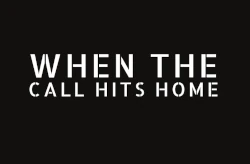Policing, Teaching, and Mental Health: Dr. Charles Baker on Building Better Criminal Justice
When most people think about police officers, they often picture fast cars, solving crimes, and catching bad guys. But there is so much more to the world of law enforcement. In a recent episode of When The Call Hits Home, Dr. Charles Baker, a retired police officer and current criminal justice professor, shared wisdom from his decades of experience. He talked about what it’s really like to be in law enforcement, how teaching connects with policing, and why mental health needs to be part of the conversation for everyone in the criminal justice system – not just officers.
From Police Officer to Professor
Dr. Baker’s story starts in Louisville, Kentucky, where he first joined the police department in the 1970s. He spent 20 years working everything from patrol duty to homicide investigations. After retiring at a young age, Dr. Baker followed his first dream: teaching. He taught at the high school level and later earned his doctorate in education, focusing on law enforcement and education together. This unique journey shaped his views about how the world of policing should work.
How Real-World Policing Impacts Teaching
Dr. Baker believes that sharing personal experiences makes his teaching stronger. In his college classes, he tries to bridge the gap between what the textbook says and what really happens in the field. He brings up situations officers might face – like handling protests or making tough decisions in danger and encourages students to discuss them openly.
He also reminds his students that police work is not all excitement; it often involves paperwork and long, boring patrols. “Many, many of your hours a day are boring… writing reports,” he says. He emphasizes the importance of communication, writing, and understanding the community, not just enforcing the law.
Why Mental Health Matters in Law Enforcement
A big part of Dr. Baker’s message is about mental health in law enforcement and criminal justice education. When he started out, talking about emotions was rare. Police officers felt pressure to act tough, and mental health challenges like stress, depression, and even suicide were often ignored. Dr. Baker notes that “alcoholism, suicides, and that, relatively speaking, in this profession are higher than many other professions.”
Now, he believes the field is slowly changing. More departments are beginning to recognize that every police officer is human with feelings, families, and vulnerabilities. Some officers are hit hard by certain tragedies, while others might seem unfazed. But ignoring the emotional impact of the job isn’t healthy for anyone.
He also talks about how working nights and weekends, or missing family events because of duty, can add stress at home. Dr. Baker insists that being an officer is more than a job; it affects families, relationships, and personal health.
Teaching Students About Mental Health
Dr. Baker weaves mental health topics into his classes. He doesn’t just focus on policing, but the entire criminal justice system, including courts and corrections. He encourages open discussions about the emotional toll of the job – not only for officers but also for lawyers, judges, and anyone who works closely with crime and loss. He hopes future officers will look out for themselves and one another, and not be afraid to seek help.
He also supports more research on the families of law enforcement officers, and wants academic programs like social work and criminal justice to pay more attention to this topic.
Building a Better Future
For Dr. Baker, the most critical change needed in law enforcement training is better communication and real human connection. He hopes the next generation of officers and their teachers will learn to listen, show empathy, and talk about hard things. It’s not just about catching criminals; it’s about taking care of those who keep us safe.
Interested in learning more? Listen to “When The Call Hits Home” for real stories and honest conversations about first responder family dynamics!
If you would like to explore our resources page or other episodes
Start Listening Today!
Start Listening Today!
Sign Up For Our Newsletter And Stay Up To Date!
Sign Up For Our Newsletter And Stay Up To Date!
